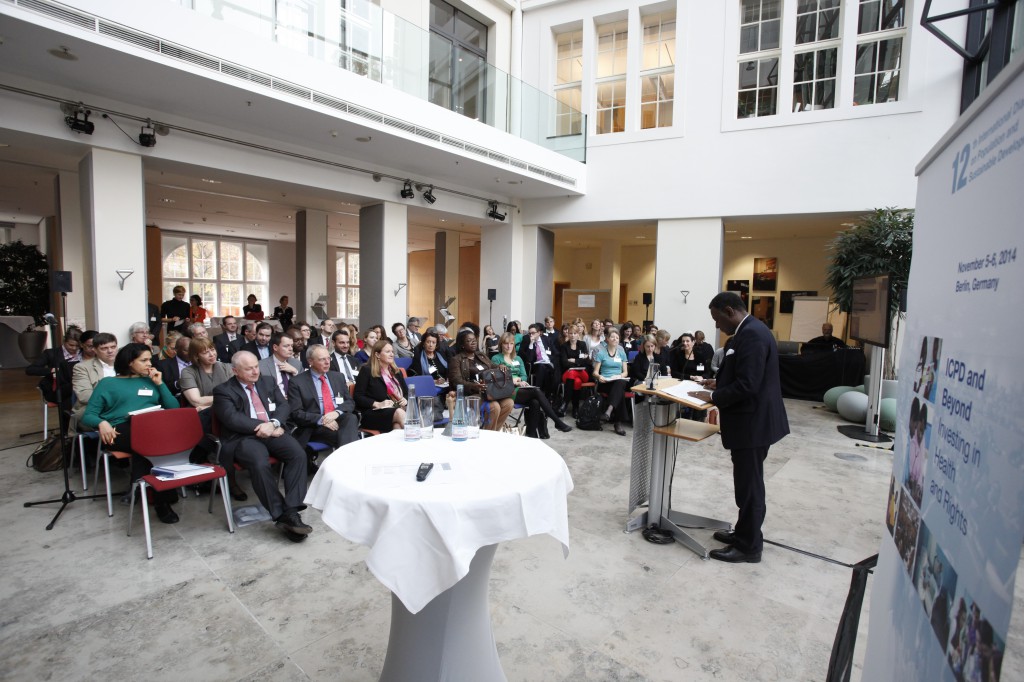The opening session
On November 5th, delegates arrived at GIZ House in Berlin, ready to assess the International Conference on Population and Development (ICPD) review process and the first phase of post-2015 negotiations.
They were welcomed by Günther Taube, Head of the Department Education, Health and Social Protection, from Deutsche Gesellschaft für Internationale Zusammenarbeit (GIZ) GmbH. “Despite much progress in recent decades in terms of health indicators around the world, it is still time to worry,” he said. “Over 200 million women do not use reliable family planning methods, though they would like to do so. Each year this unmet need results in 80 million unwanted pregnancies and 42 million abortions, 20 million of which take place under unsafe conditions.”
His comments were echoed by Klaus Brill, Vice President of Corporate Commercial Relations at Bayer HealthCare. Brill urged delegates to use the time in Berlin to exchange strategies and improve negotiation tactics. “Sexual and reproductive health continues to be too low on the political agenda,” Brill stated. The ideas captured at this conference, he continued, would be used to “create a catalogue of recommendations to ensure that sexual and reproductive health and rights (SRHR) is included in the post-2015 development framework”.
Brill recognized the importance of securing rights for young people, which despite the absence of a target centered on young people in the proposed sustainable development goals. “We should continue to focus on young women and girls as the most vulnerable groups, especially in developing countries,” he concluded.


